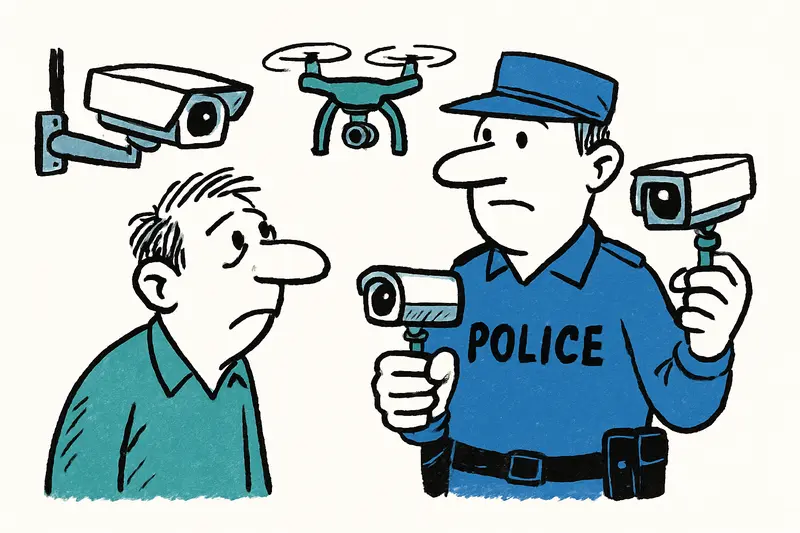A modern surveillance system at Plaza de España is set to help make the city centre safer. The city is investing in cameras with video analysis, drones and new operational gear – critics raise data protection concerns.
More technology, more order — or just more eyes?
In Palma, there has been a major upgrade behind the scenes in recent weeks. Anyone who gets their coffee at Plaza de España in the morning or walks through Parc de Ses Estacions in the evening will soon encounter new cameras more often, uniformed patrols and occasionally a drone over the rooftops. According to the town hall, the modernization is a response to recurring problem spots in the city centre — and to the desire of many residents for a stronger presence.
What is planned
The plan is to set up a video surveillance system with a total of 13 cameras, complemented by software that will analyse video images. The city quotes a maximum investment sum of around €138,718 and an implementation period of about two months. In addition, 13 licenses for video analysis and AI technology are mentioned, intended to support everyday checks — for example to detect crowds, lost items or unusual movements more quickly.
At the same time, the administration has announced a newly formed drone unit and has created additional posts in the police force. Funds have also been allocated for equipment: around €101,120 will be spent on uniforms and protective gear; new vehicle purchases are also planned — including dozens of motorcycles, several patrol cars and some larger emergency vehicles.
How people here are reacting
On the street I hear mixed voices. A woman who sells at the kiosk on the Plaça says: "If there is less shouting at night, I am in favour." A student who often sits at the station is more sceptical: "Drones? I hope they're not looking at my balcony."
City councillors emphasise that it is about prevention; critics warn of possible intrusions into privacy. This is not just a technical issue: it is about trust, rules and the question of who may see the footage and when. Legal requirements and controls will now be important — the city administration promises to regulate the use transparently.
What happens next
In the coming weeks, tenders are to be finalised and initial deliveries are expected. The city aims to have the cameras installed within two months. Afterwards, the new drone unit will carry out training flights and the additional police officers are to enter service with new equipment.
I think: more security feels good — as long as the rules are clear. On the Passeig, where I often stroll, I hope the devices really help people feel safer without the city feeling like a glass house. A little scepticism is healthy; a bit more presence in the evenings perhaps as well.
Similar News
Palma in Transition: Which Neighborhoods Are Seeing Income Soar
In parts of Palma, average incomes have risen significantly over the last ten years—especially where wealthy foreigners ...

After 30 Years: Retired Couple Leaves Mallorca – Rising Rents Push Them to the Mainland
After decades on the island, María and Paco must move to Alicante due to rising rents and dwindling pensions. A story ma...

Traffic Cameras in the Tramuntana: Tender Starts Soon
The island council plans to push ahead with the camera project on the Ma-10, which has been stalled for months, through ...

Court confirms right to Islam education in Mallorca schools
A court on the Balearic Islands has decided: parents can demand that Islam education is offered near their children at p...

Balearic Islands report more deadly accidents due to driver distraction
On the Balearic Islands, there are noticeably more deadly traffic accidents involving driver distraction. Police and the...
